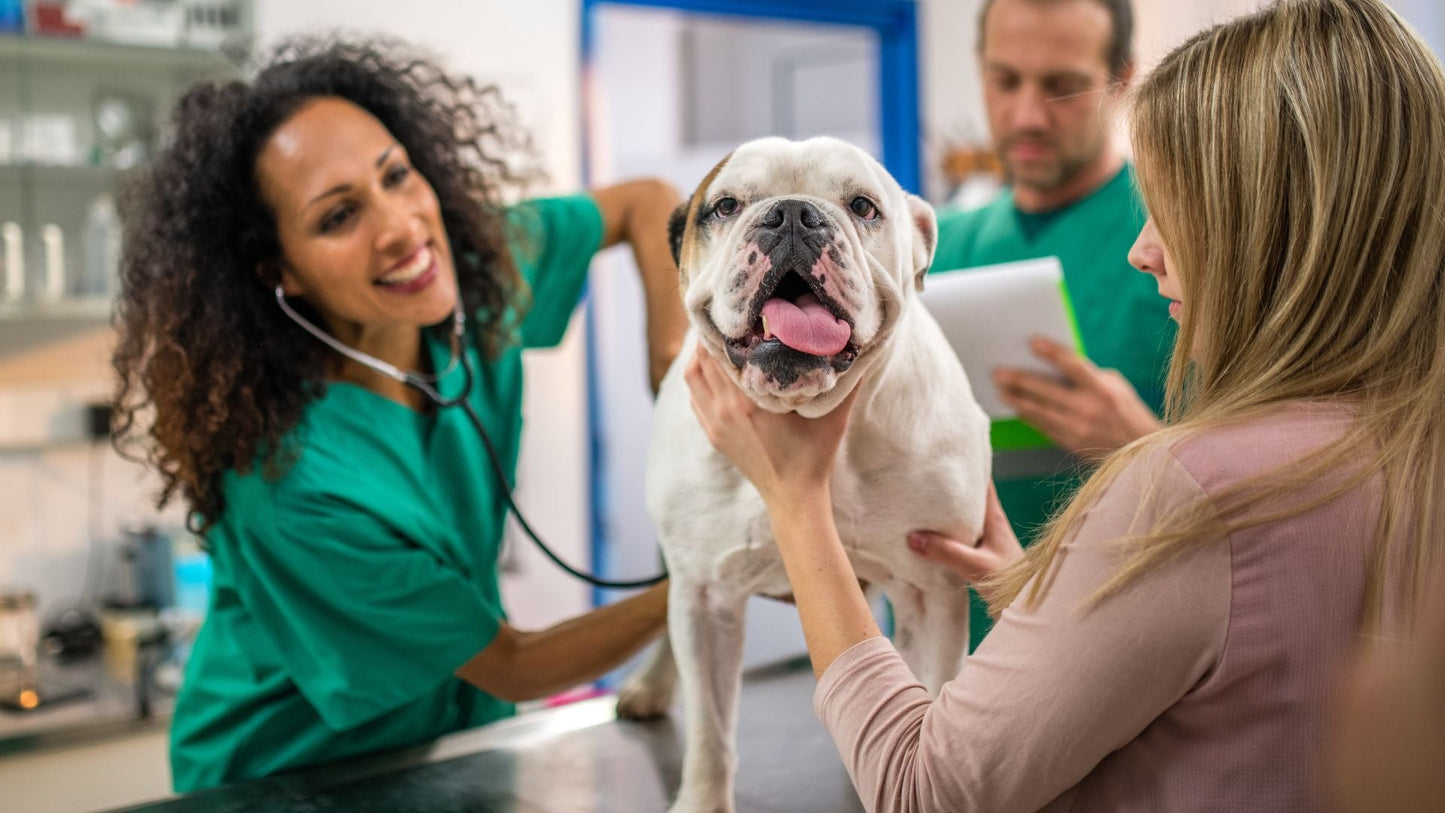
As our dogs grow older, their needs change. Just like humans, senior dogs may experience mobility issues, weight fluctuations, cognitive decline, and a weakened immune system. Since we love our pets so much that we want to give them the best life possible, for as long as possible.

If you want to extend your time with your senior dog, here are five essential ways to care for your aging dog, enabling them to live their fullest potential:
1. Adjust You Senior Dog Diet for Optimal Health
As dogs enter their senior years, their metabolism slows down, and their dietary needs shift. Providing a high-quality diet tailored to senior dogs can help maintain a healthy weight, support joint health, and boost cognitive function. Here are some dietary tips:
- Choose a senior dog food formula that contains glucosamine and chondroitin for joint health. For instance, you may get these as supplements and add them to their food.
- Increase omega-3 fatty acids to support brain function and reduce inflammation.
- Monitor portion sizes to prevent obesity, which is a common issue in aging dogs.
- Ensure they get enough fiber to aid digestion and prevent constipation.
By considering your dog’s age in human years, you can make dietary adjustments to support their longevity and overall well-being.
2. Provide Regular Veterinary Check-Ups
Our wise aging dogs are more prone to illnesses, and regular veterinary check-ups are essential for early detection of health issues. Your veterinarian can monitor age-related conditions like arthritis, heart disease, and diabetes, helping you manage them effectively.
- Annual vs. Bi-Annual Check-Ups: If your dog is over the equivalent of 50 human years (about seven dog years for a medium-sized breed), consider scheduling vet visits every six months instead of annually.
- Dental Care: Older dogs often suffer from dental disease, which can lead to more serious health issues. Regular dental cleanings and at-home dental care can keep their teeth and gums healthy.
- Blood Work & Screenings: Routine blood tests help detect hidden conditions like kidney disease, liver problems, or thyroid imbalances.
By staying proactive with veterinary care, you can help your senior dog enjoy a longer and healthier life.
3. Keep Them Active with Low-Impact Exercise
Exercise is just as important for older dogs as it is for younger ones, but it should be adapted to their aging bodies. Dogs who reach their equivalent of 60-70 human years may not have the same stamina, but they still benefit from regular movement.
- Shorter Walks: Instead of one long walk, try two to three shorter walks throughout the day.
- Swimming: Water-based exercise is excellent for senior dogs as it minimizes joint stress while keeping them active.
- Gentle Playtime: Engage your dog in mentally stimulating activities like puzzle toys or light fetch sessions.
- Stretching & Massage: Gentle stretching or massage can help with joint stiffness and improve circulation.
Adjusting your dog’s exercise routine based on their age in human years ensures they stay mobile while avoiding strain or injury.
4. Make Home Adjustments for Comfort
Older dogs often develop arthritis or other mobility issues, making it harder for them to get around. Small changes in your home can make a big difference in their comfort and quality of life.
- Orthopedic Dog Bed: A supportive, memory foam dog bed can relieve joint pain and provide better sleep.
- Ramps & Stairs: If your dog struggles to jump onto the couch or climb stairs, use ramps to make access easier.
- Non-Slip Flooring: Hardwood or tile floors can be slippery for senior dogs. Placing rugs or traction mats can help prevent falls.
- Elevated Food & Water Bowls: Raising their bowls can reduce strain on their neck and joints while eating or drinking.
By modifying your home, you ensure that your senior dog can move around comfortably and enjoy their golden years.
5. Give Them Extra Love & Attention
Senior dogs may experience cognitive decline, hearing loss, or vision impairment, making them more dependent on their owners. Providing extra love and attention can help ease their anxiety and make them feel secure.
- Gentle Senior Dog Grooming: Brushing their coat and giving them relaxing massages can soothe them and improve circulation.
- Maintain a Routine: Dogs thrive on routine, and sticking to a consistent schedule can reduce confusion and anxiety.
- Interactive Toys & Mental Stimulation: Keeping their mind engaged with treat puzzles or scent games helps prevent cognitive decline.
- Speak Softly & Be Patient: If your senior dog has hearing loss, use hand signals or gentle touch to communicate.
By recognizing their aging needs and providing emotional support, you can strengthen your bond with your furry friend and ensure their happiness in their senior years.
As they transition into their golden years, focusing on their diet, veterinary care, exercise, home environment, and emotional well-being will ensure they live a happy and comfortable life.
At Bark, Meow, N’ Beyond, we believe that every dog deserves love and proper care at every stage of life. Whether your furry companion is still playful in their “human 40s” or enjoying their golden years, small changes in their care routine can make a significant impact on their well-being. Cherish every moment with your senior dog, and give them the love and attention they deserve!
